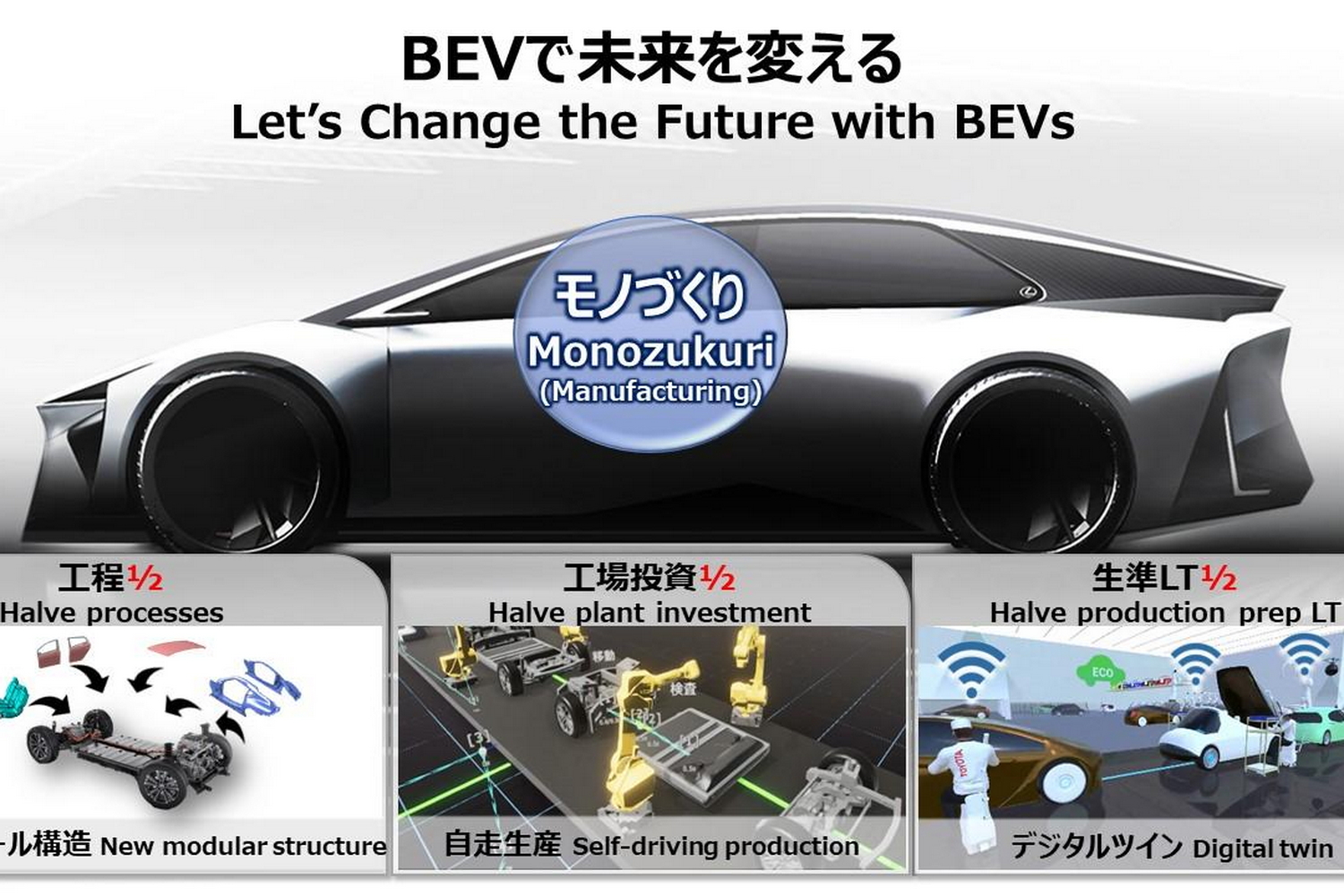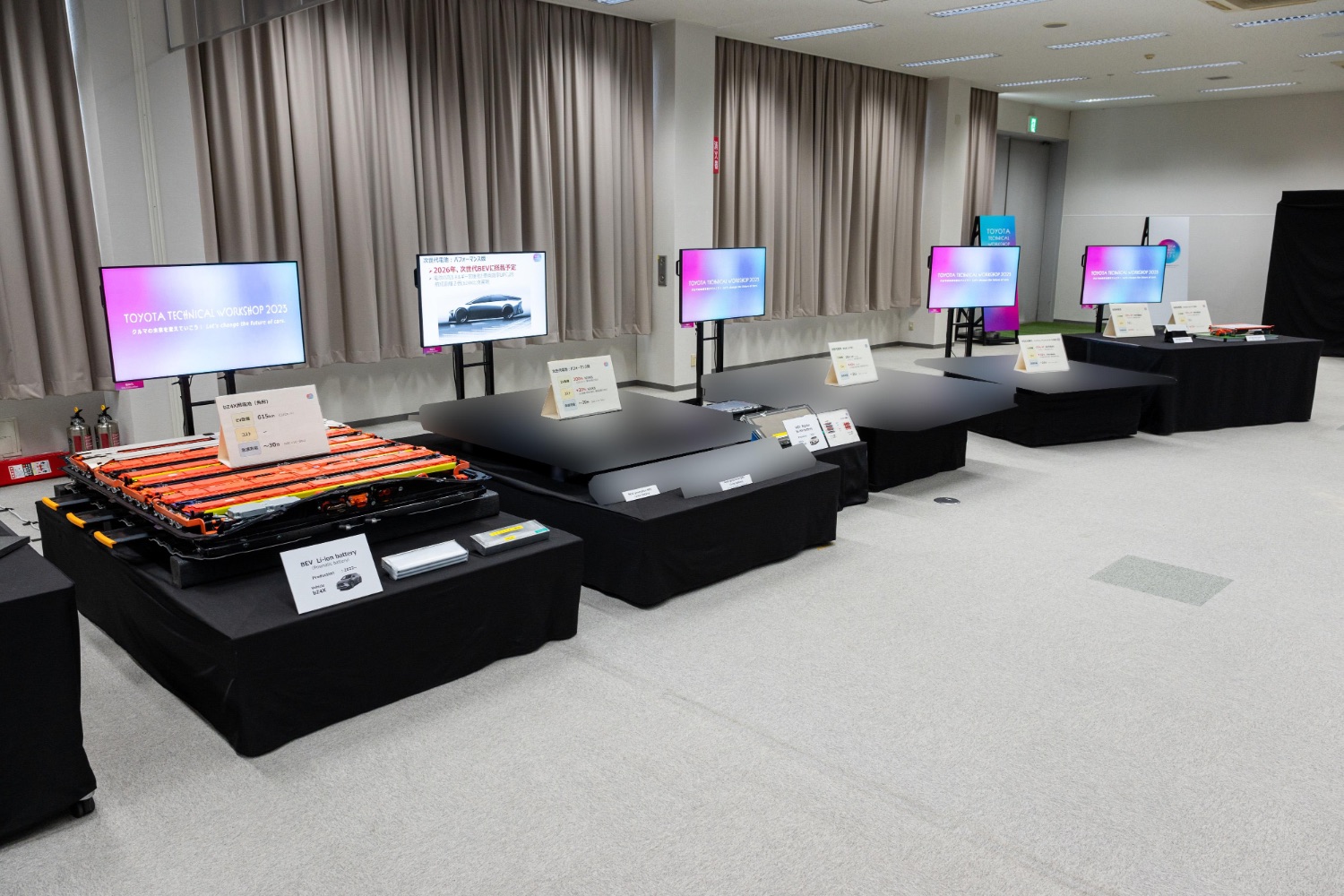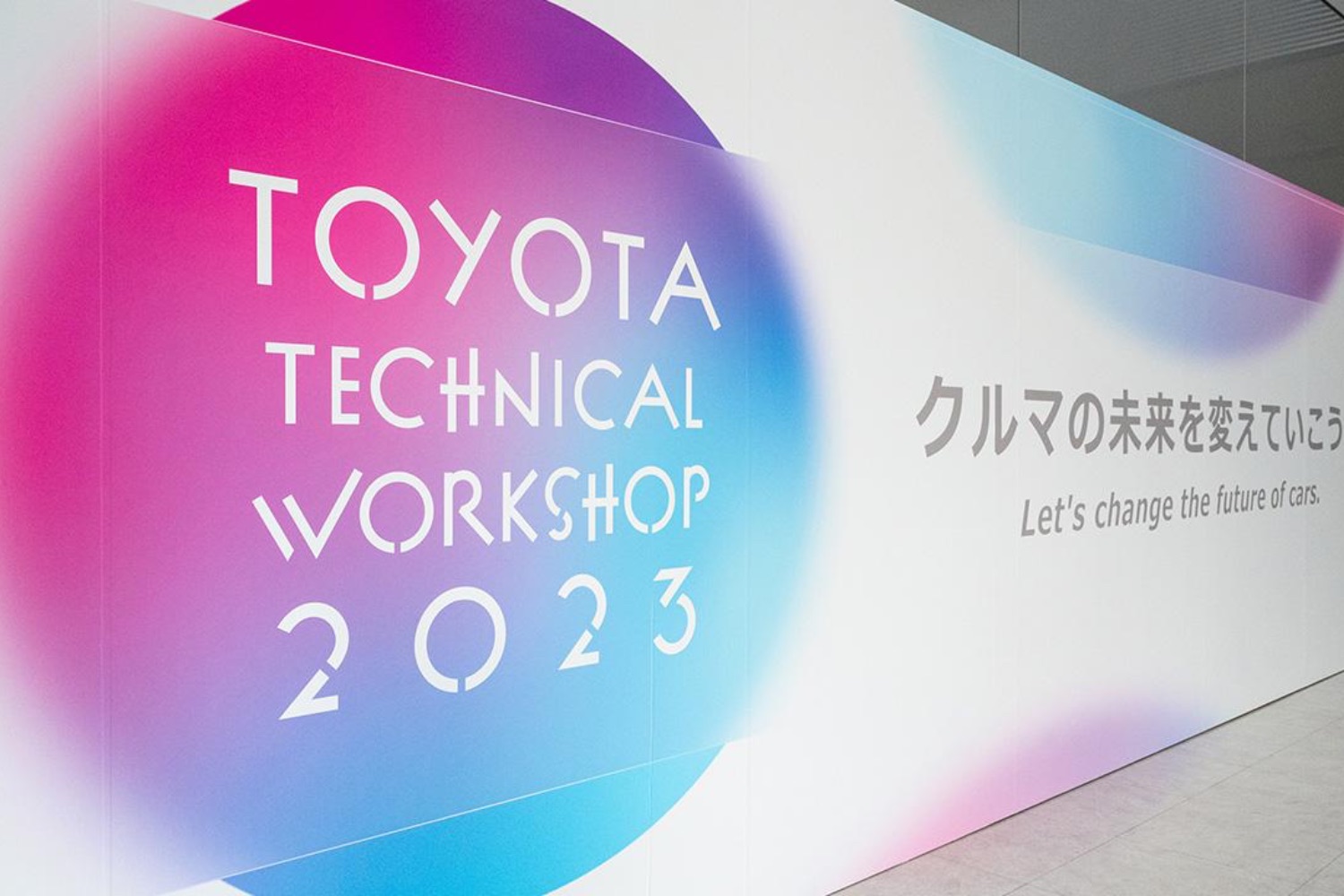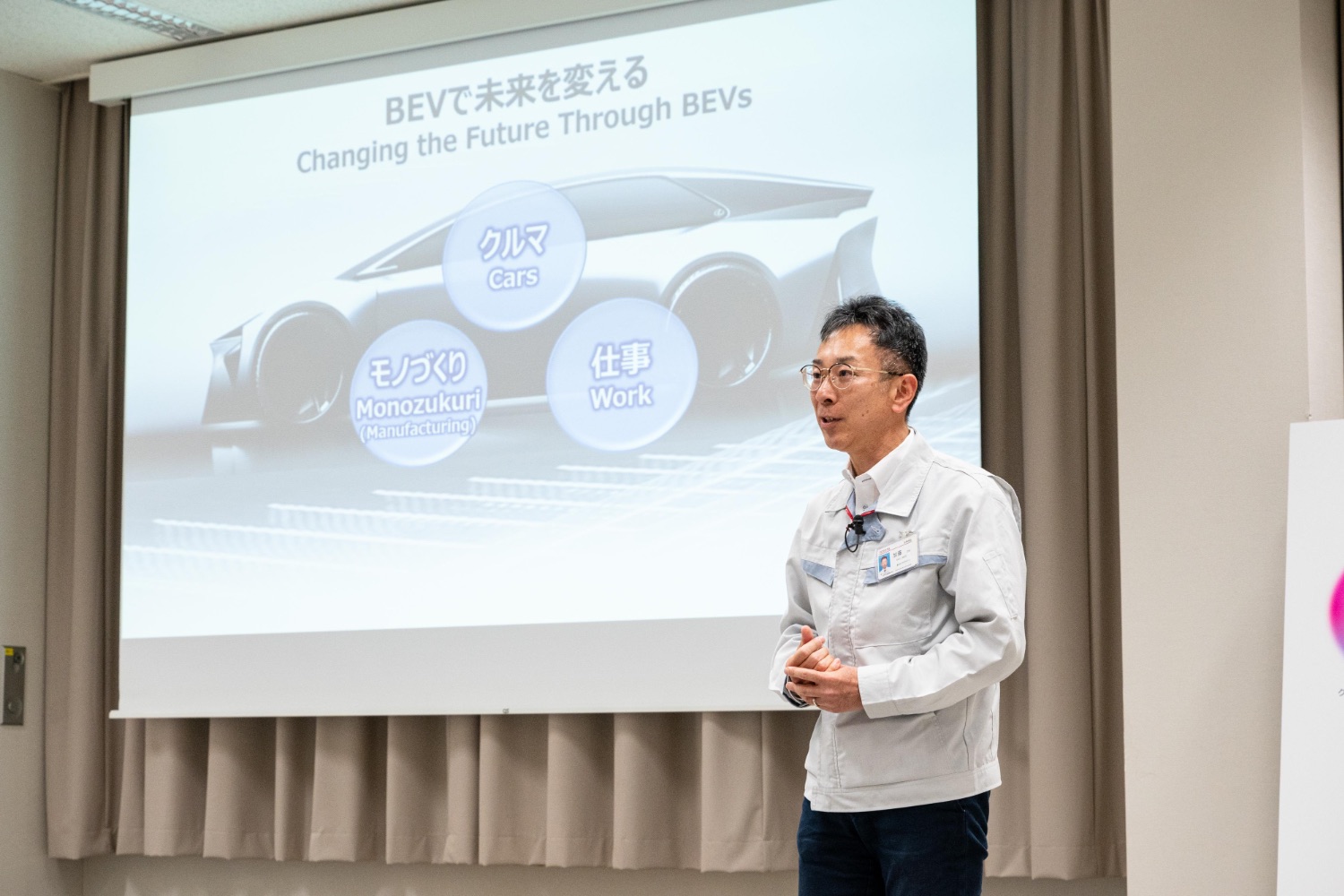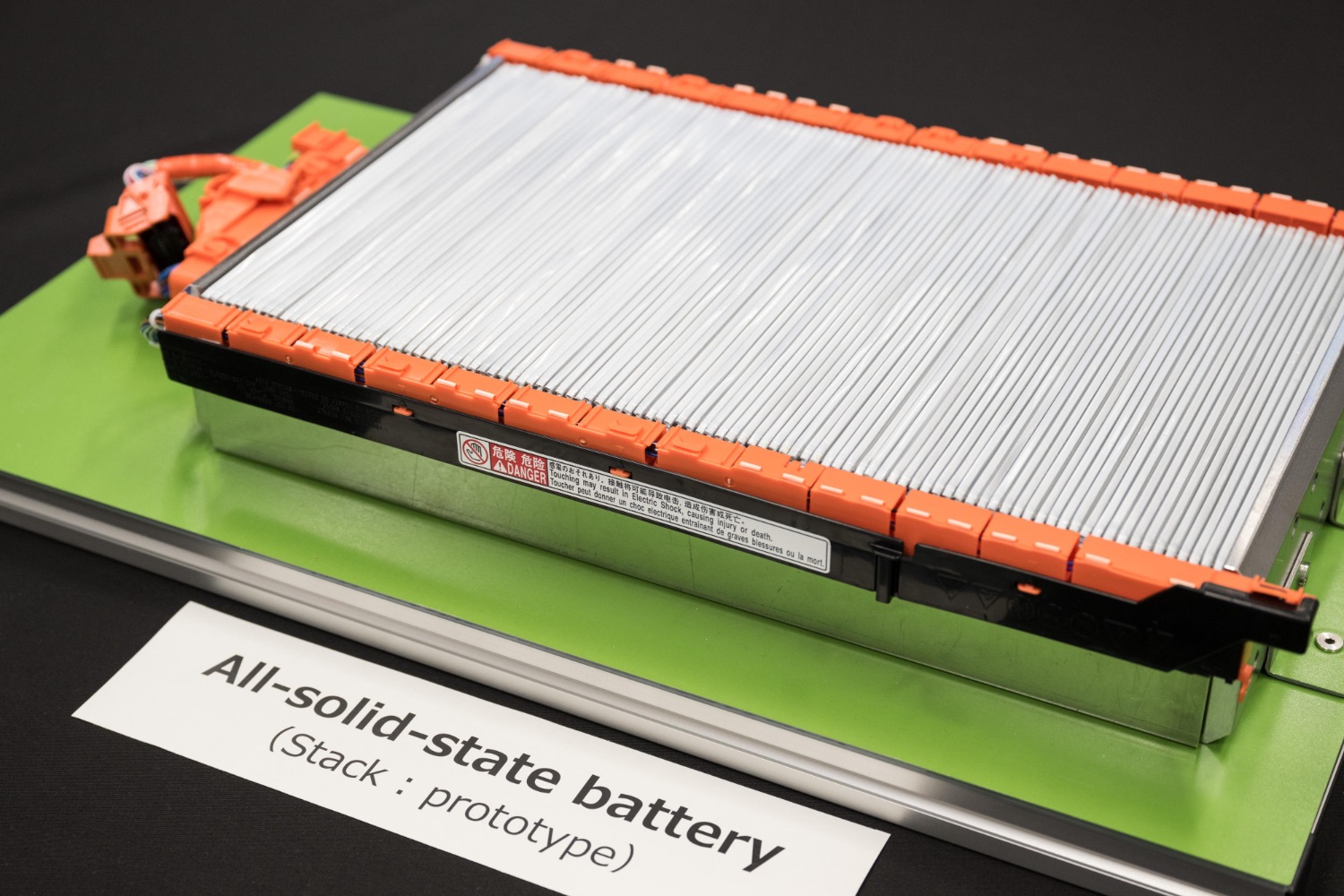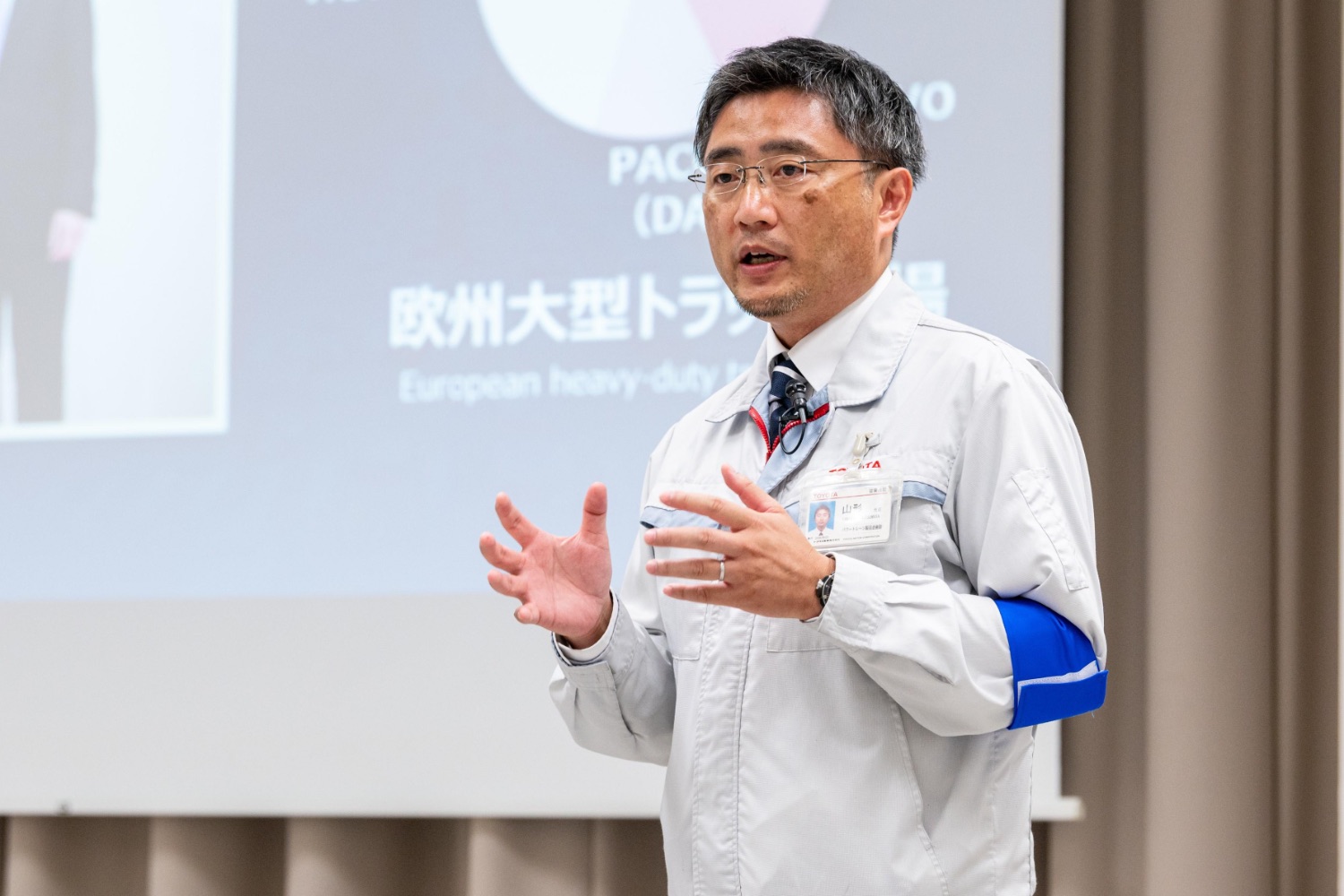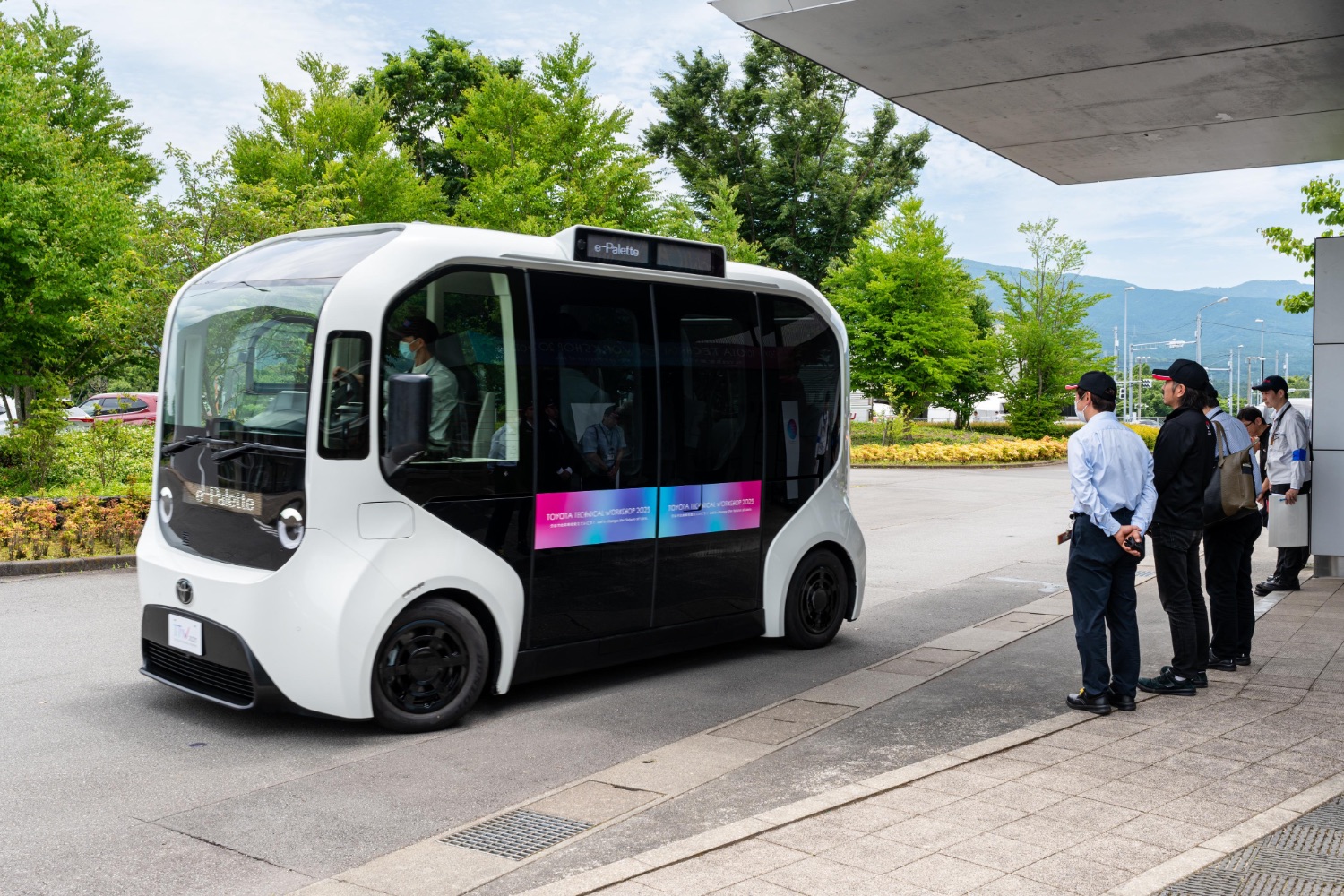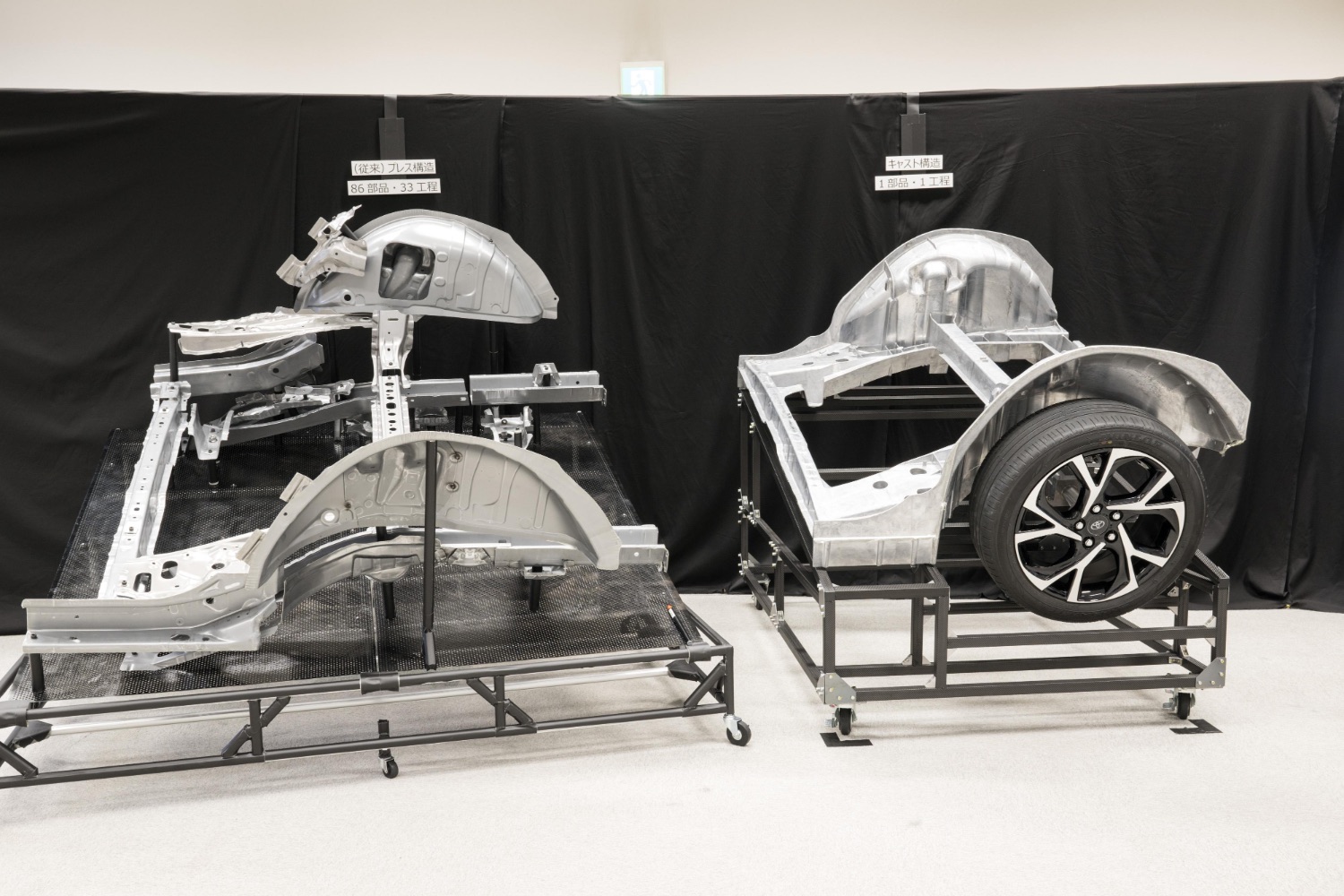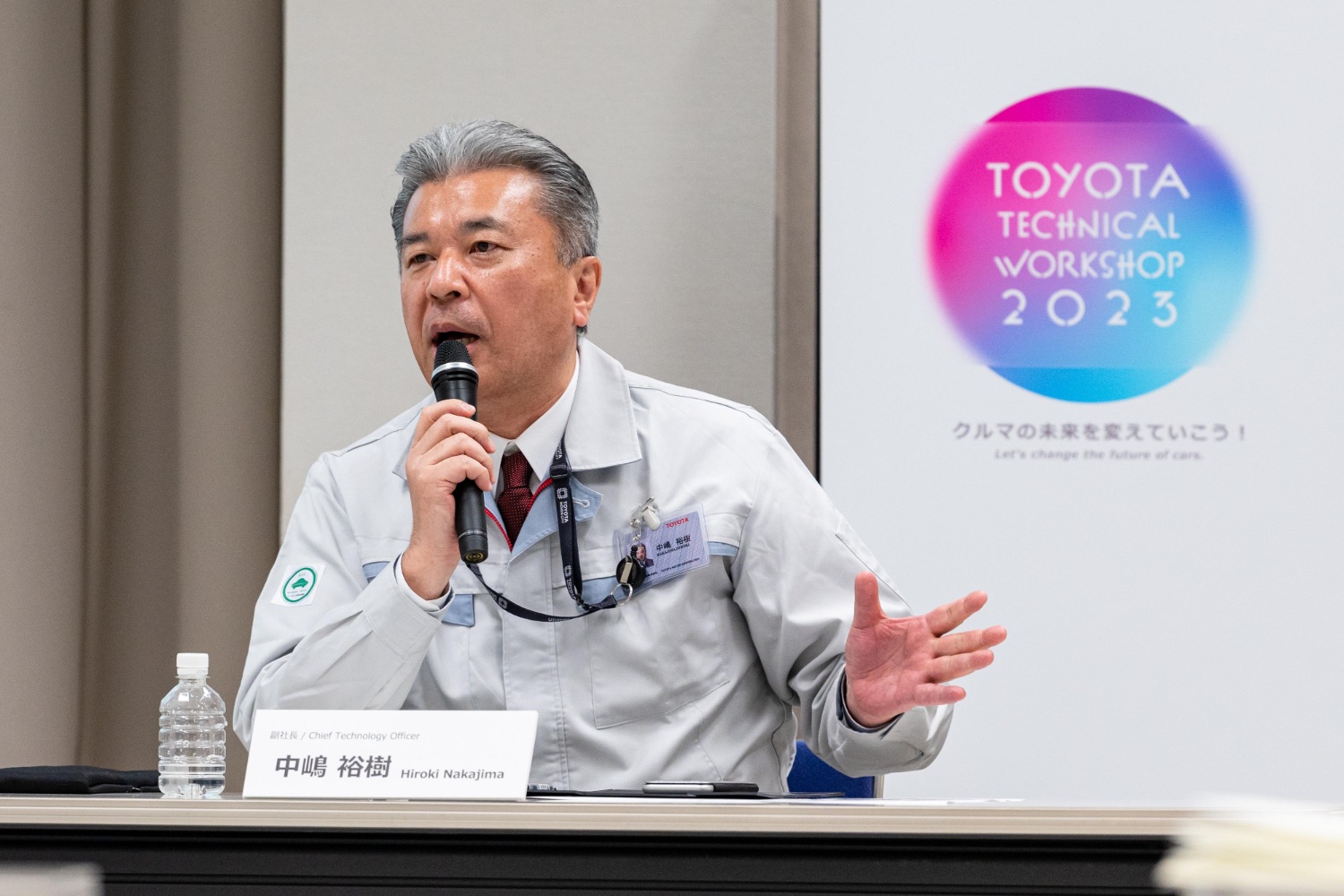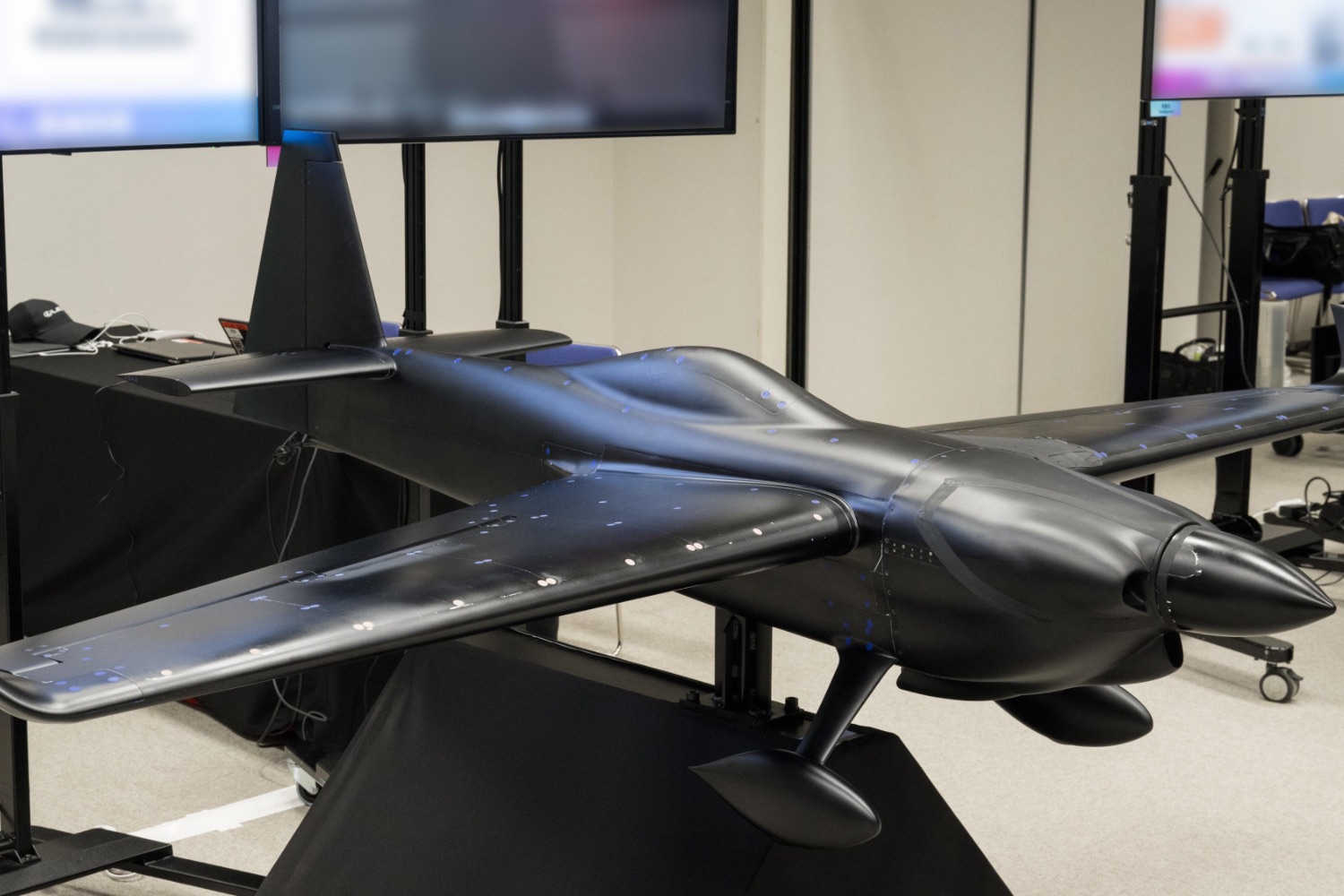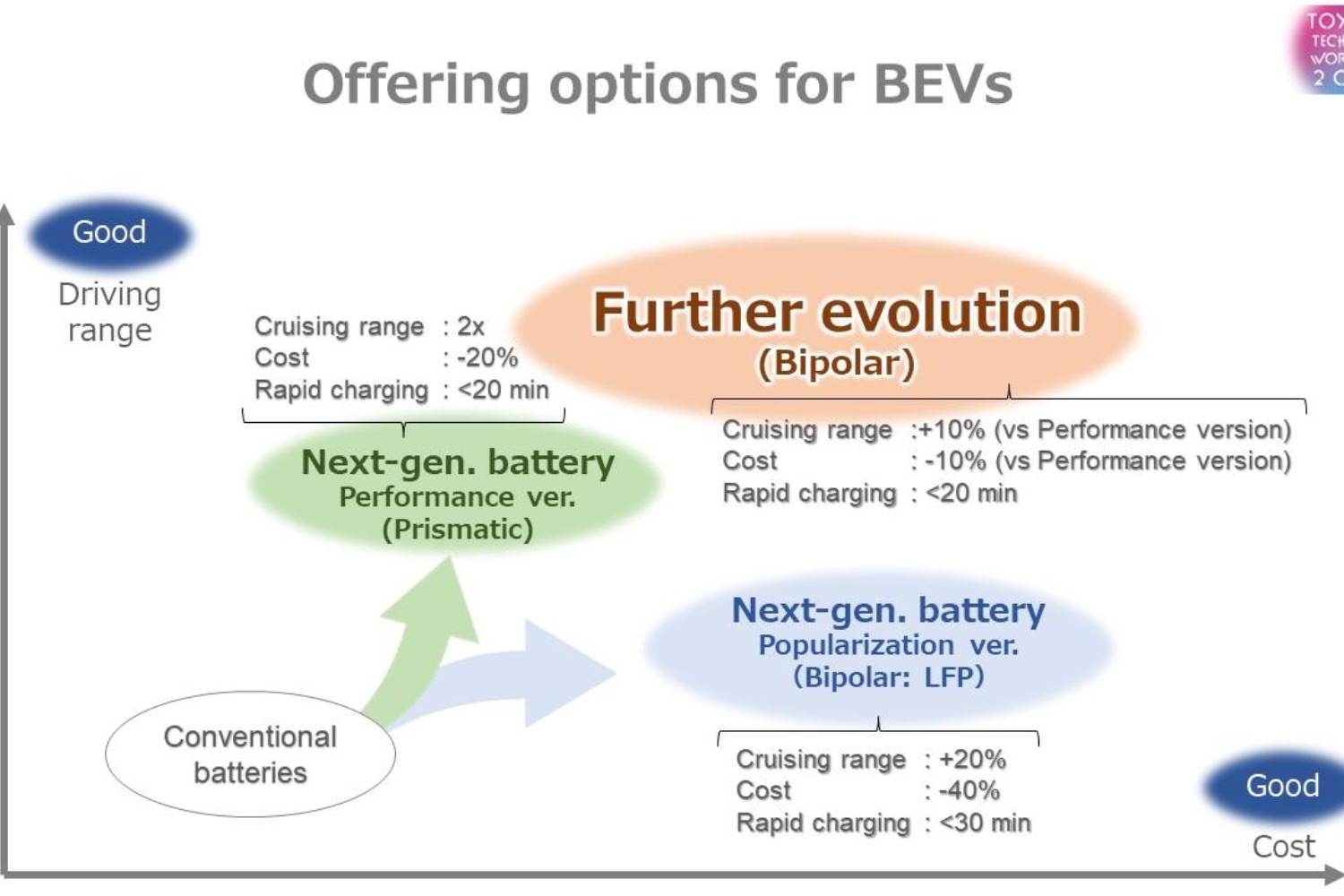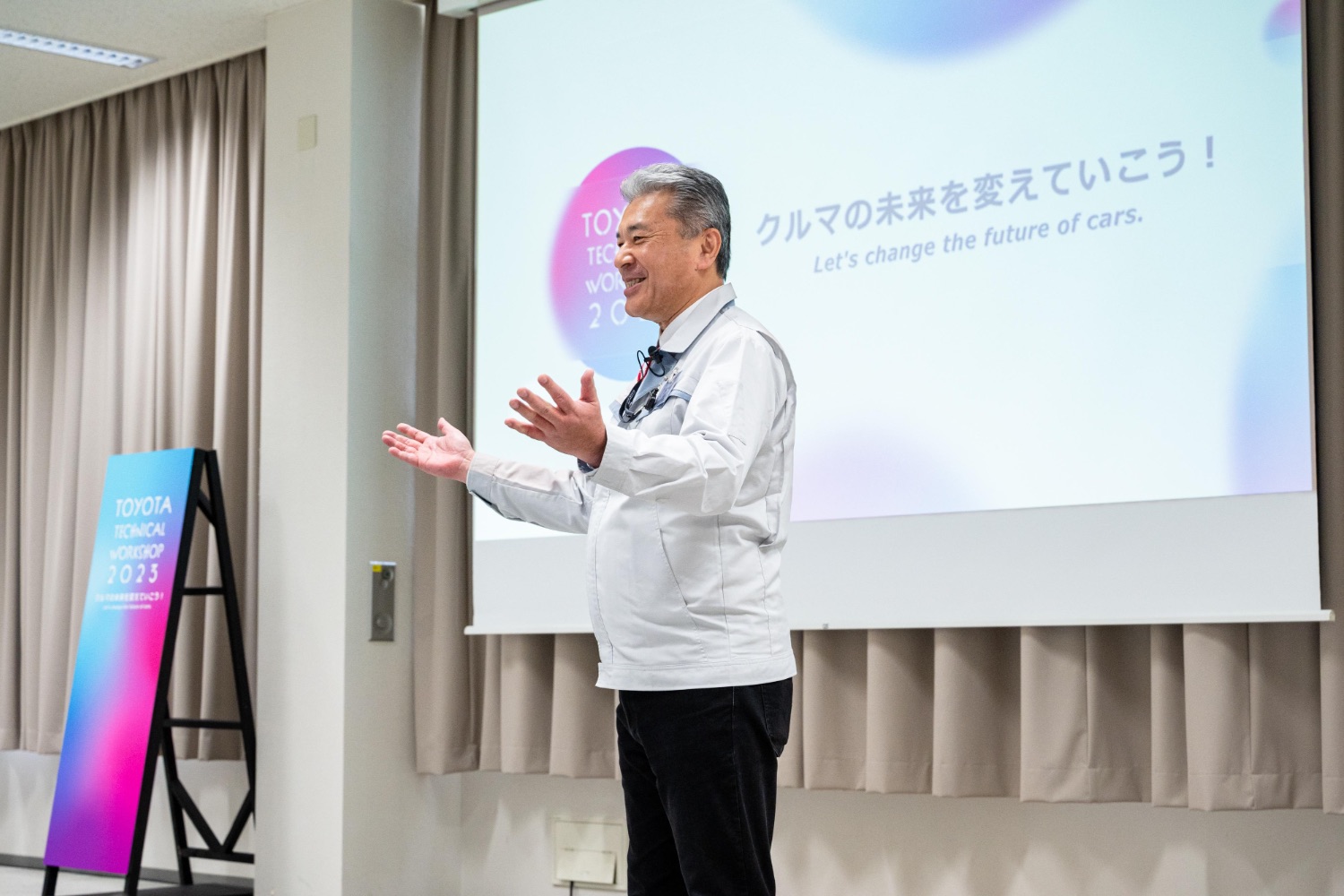Toyota has offered a glimpse into its plans for rolling out a host of new electric cars, with potentially game-changing technology on the way from the Japanese manufacturer.
Cheaper, better batteries on the way
The biggest claim that Toyota is making is that it's working on EV batteries that can provide up to 1,000km of range on a single charge, yet will cost around 20 per cent less than current batteries and be able to fast-charge in just 20 minutes.
These aren't next-generation 'solid-state' batteries, either. Although Toyota is working on solid-state batteries too (and believes that they are ultimately what EV batteries will become), these 1,000km batteries are based on existing lithium-ion chemistry.
According to the briefing at Toyota's 'Technical Workshop' in Japan, these batteries should start to appear in models from 2026 onwards and will be sold in two types. There will be a 'popularisation' version, which we take to mean will be more about affordability than long range, and which will be fitted to mainstream models; and a 'performance' version, which is the one that will be designed to stretch to 1,000km on a charge and which will most likely be reserved for more expensive models, including Lexus models, at least at first.
The 'popularisation' version will take lessons learned from Toyota's older-style nickel batteries (as it has used in its hybrid cars since the late nineties) and is expected to boost range by around 20 per cent compared to current batteries, be able to fast-charge in less than 30 minutes and be around 40 per cent cheaper to make than existing designs. Toyota says it will use a lithium-iron-phosphate (LFP) chemistry for this battery, which is cheaper to make and more robust but a little less range-friendly than some other designs. Nonetheless, LFP batteries are becoming increasingly popular - BYD already uses them for its new 'Blade' battery in the Atto 3, Seal and Dolphin models, and Ford has committed to using them, with an LFP battery version of the Mustang Mach-E launching next year.
Solid-state by 2027?
Toyota hasn't given up on solid-state batteries, either. Although the first versions were supposed to be in production by 2025, there have been issues with solid-state batteries expanding and contracting as they charge, leading to cracks which shorten the battery life. Toyota claims that it has now developed technologies that overcome this issue and expects to have the first solid-state batteries on sale by 2027 or 2028.
Obviously, battery performance alone is just one aspect of how efficient an electric car is, and with that in mind, Toyota has said that it has begun work on a project to improve the aerodynamics of its EV models dramatically. The car-making giant has linked up with the Space Systems Division of Mitsubishi Heavy Industries to apply hypersonic rocketry technology to cars.
Toyota is studying the technologies that protect rockets from the heat caused by air friction and compression and is looking for ways to transfer that knowledge to the speed range of a car. Drag can be lowered by controlling points of contact with the airflow, for example, through body surface treatment.
Behind the scenes, work is underway to make EVs easier and more cost-efficient at the building stage. This, thinking back to the introduction of the famous 'Kaizen' practices of the seventies and eighties, was always Toyota's secret sauce when it came to making lots of cars and lots of profit.
Quicker and easier to build
The plan is to essentially halve the complexity of building an EV. "The future of manufacturing is about halving - halving BEVs, so to speak. Modular structures and self-driving assembly lines will halve production processes and plant investment. In addition, we can halve production preparation lead times through the potential of digital twins," said a senior Toyota engineer at the presentation.
These new cars will be modular in construction, with a common centre section that holds the battery pack and differing front and rear ends. There are also proposals for a production line that uses the cars' self-driving capabilities so that once they have their wheels on, they can drive themselves forward while finishing touches are being applied. Such a setup eliminates conveyors from the assembly line, allowing for more flexible factory layouts.
Different metal castings will be used, dramatically reducing build times and complexity. For example, Toyota pointed to the rear section of the current bZ4X electric crossover, which comprises 84 separate panels. New casting and moulding technology - known as 'giga-casting - could reduce that to one single panel.
Hiroki Nakajima, Toyota's chief technical officer, said: "Toyota has overcome what were thought to be difficult challenges with its technological capabilities, including the Prius, now synonymous with hybrid vehicles, and the Mirai fuel cell vehicle, paving the way for the future. Using the power of technology to transport our customers into the future and connect cars to society, we will continue to create our future society."

